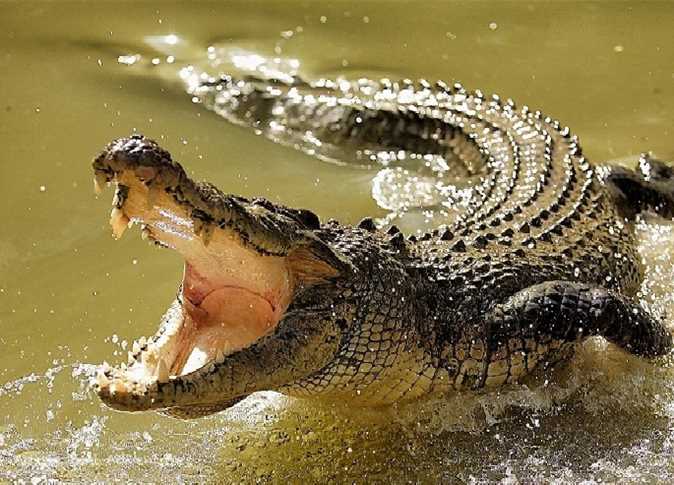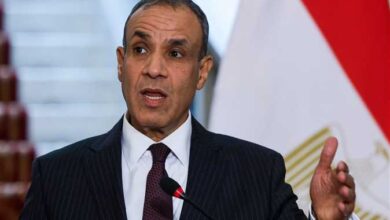A dozen mummified baby crocodiles peer out from the clutter of a dusty shop at the back of Aswan’s tourist bazaar. The ultimate Nubian souvenir, the shop owner claims, spinning yarns about monster crocodiles that once terrorized his village.
“When we were children, our mother warned us not to play near the Nile’s banks because crocodiles would lie in wait just below the water’s surface,” he tells prospective buyers.
None of this is true, of course, as Egypt’s crocodile population was almost entirely wiped out long before the 30-something Nubian curio salesman was even born. At that time, the only real danger lurking in the waters near his village on Aswan’s west bank was bilharzia.
Decades of overhunting and habitat loss had reduced Egypt’s crocodile population to a few wily snappers by the 1960s – and these were confined to sparsely inhabited stretches of the Nile near the Sudanese border. Their days were numbered until fate intervened.
The completion of the Aswan High Dam 1970 gave the species a second chance. Suddenly, there was a massive freshwater reservoir with an undeveloped shoreline and virtually no human activity. Better still, the silty manmade lake teemed with barbel catfish, the crocodile’s favorite dinner.
Away from its principal threats – trophy hunters and land developers – crocodiles made a healthy comeback. A survey conducted in 2008 by the Nature Conservation Sector (NCS), a branch of the Egyptian Environmental Affairs Agency (EEAA), estimated that there were over 6000 crocodiles in Lake Nasser, or about one for every kilometer of shoreline.
As crocodiles became more visible, the enormous profit in their trade fueled a thriving black market. Wildlife experts say the unfairly vilified reptiles, which play a crucial role in maintaining the ecological balance of Lake Nasser, are increasingly ending up stuffed, skinned or in pet store windows.
International experts estimate that over 3000 hatchlings are smuggled out of Egypt each year and up to 400 juvenile and adult crocodiles are killed for their highly-prized skins. Hundreds more are sold to local pet stores and embalmers.
Former NCS director Moustafa Fouda, now an advisor to the environment minister, says national legislation – including Law 102/1983 for Natural Protected Areas and Article 28a of Environment Law 9/2009 – explicitly prohibits the capture, trade or killing of crocodiles.
"The law is very clear about this," he says. "It is not allowed under any circumstances to catch or kill crocodiles."
The Nile crocodile (Crocodylus niloticus) is also protected by international legislation, including the Convention on International Trade in Endangered Species of Wild Fauna and Flora (CITES). Last year, the Egyptian government successfully petitioned to transfer the species from Appendix I to II for the purpose of ranching, but environment officials are at pains to refute rumors that this made crocodile hunting legal.
"Originally, we thought that if we proposed ranching it would be accepted, but it turns out ranching is very complicated," explains Fouda. "So what we did was transfer [crocodiles] to Appendix II with zero quota, which means that for the next three years we're not going to catch any crocodiles. At the same time, we'll continue our studies on the population for public awareness and law enforcement."
Airport customs officers have thwarted dozens of attempts to smuggle live crocodiles out of the country to exotic pet dealers and commercial leather operations. But there also appears to be growing domestic demand among the country's elite for hatchling crocodiles as household pets.
"Baby crocodiles are very popular," says one backstreet pet store owner. "The same people who buy them often buy vultures, foxes and pythons for their villas."
In Aswan, a wiry old trinket vendor brushes aside a pile of curled papyrus sheets to reveal a glass tank filled with half a dozen live crocodile hatchlings. They make "wonderful pets," he insists, instructing buyers to feed the chirping snappers uncooked fish and chicken wings until they reach a meter in about two years. After that, he says, most owners release them into the Nile rather than risk losing a hand to a feeding accident.
Crocodile hatchlings sell here for LE150 each, but by the time one reaches Cairo, nearly a thousand kilometers downstream, the price has climbed to LE700.
At a pet store in the upscale Cairo district of Zamalek, a small crocodile basks under a heat lamp in a tank it shares with a comatose monitor lizard. A store employee insists the hatchling was legally acquired, but advises potential buyers to be discreet about its ownership.
"The police don't know the law," he insists.
Crocodiles were kept as pampered pets by the Ancient Egyptians, who worshipped the crocodile-headed god Sobek and showered its feared yet revered earthly manifestation with adulation.
"They would adorn them with gold bracelets and earrings, and when they died, they had them mummified," the Greek historian Herodotus observed in the fifth century BC.
The practice of mummifying crocodiles continues today in some parts of southern Egypt, where Nubian fishermen stuff their carcasses with straw, adorn them with colorful beads, then hang them over the door of their house as talismans to ward off the evil eye.
But on Sahel Island, five kilometers south of Aswan, villagers have found more profit in keeping captured crocodiles alive as a tourist attraction. One family has built a cement tank for its growing collection of young crocodiles, charging tourists to have their picture taken with the reptiles.
Ekramy al-Abassery, director of the Crocodile Management Unit at the EEAA, says he is aware of several illegal mom-and-pop set-ups near Aswan, but his agency is reluctant to intervene. To strip an impoverished Nubian village of its lucrative tourism gimmick could stir a hornet's nest and would undermine local support for other environmental initiatives.
"We try to educate them," he says. "Some tourists like to see the crocodiles, but many others object to seeing animals kept like this. Tourists will pay far more to see crocodiles in their natural environment and we are looking into sustainable eco-tourism projects."
Environmental authorities have taken a tougher stance where established businesses are concerned. In recent months, the EEAA has closed down a number of private menageries stocked with exotic animals. In one instance, officers raided a coffee shop in Kom Ombo whose owner had created a pint-sized zoo of lions, monkeys, snakes and crocodiles. The owner was fined and the crocodiles were released back into Lake Nasser.
But the most satisfaction, Abassery admits, came from confiscating a large crocodile being held captive at a Luxor hotel owned by a close confidant of the Mubarak family. EEAA officers who raided the hotel in late 2010 found the four-meter-long reptile in a fenced-off pool on the resort's neatly manicured grounds.
The crocodile was returned to the wild and the hotel's management taken to court on charges of illegal possession of a protected species – a bold legal challenge that purportedly infuriated Mubarak's inner circle.



